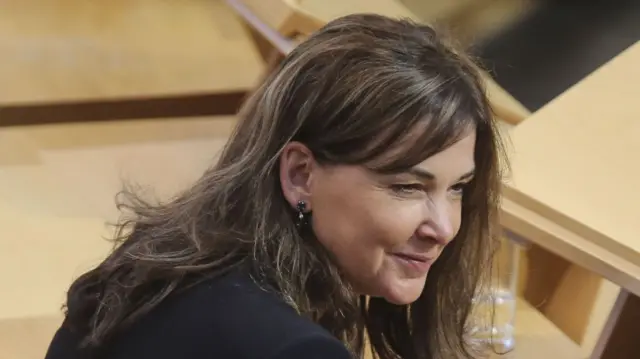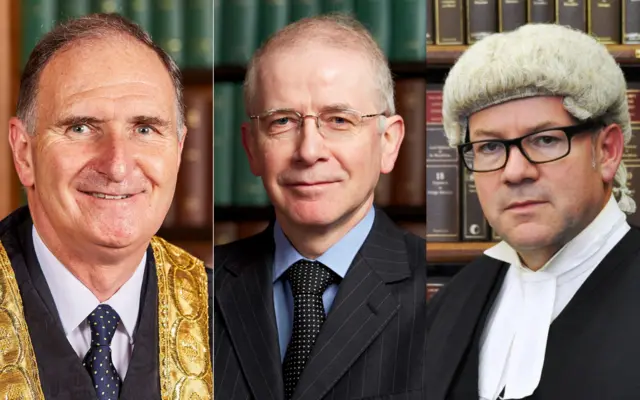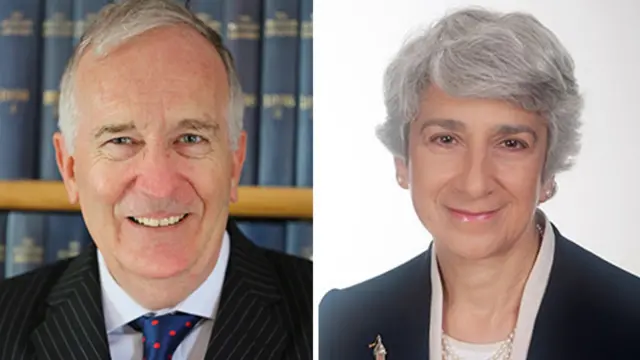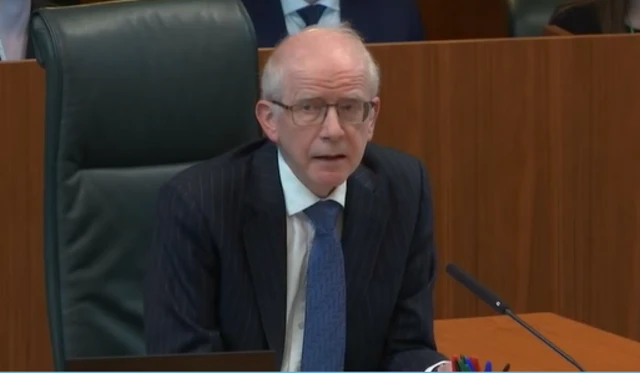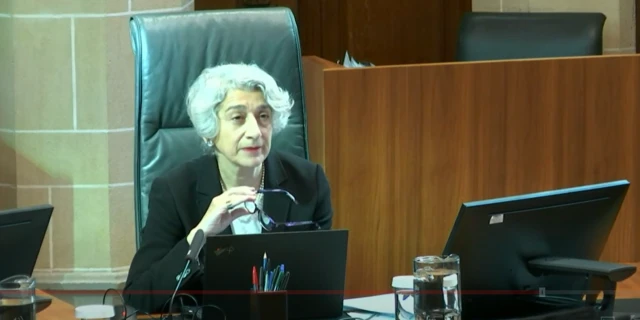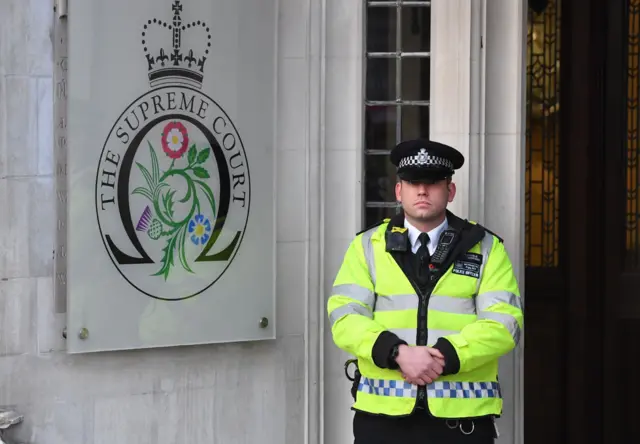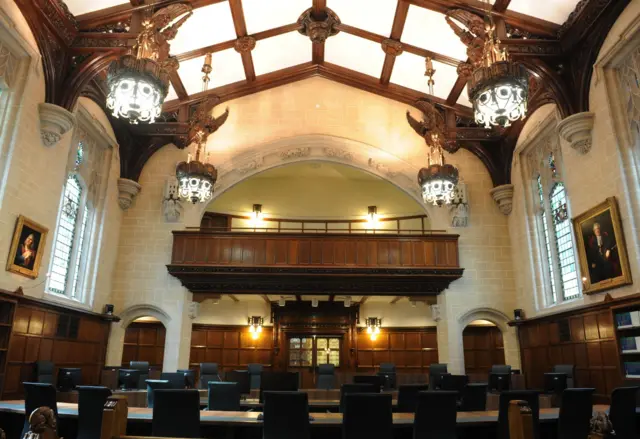Imperial Tobacco vs Lord Advocatepublished at 14:22 BST 11 October 2022

Lord Advocate Dorothy Bain has referred to a range of case law on the issue before the court.
Imperial Tobacco vs Lord Advocate was another case centred around Holyrood’s competence, with Imperial Tobacco arguing that MSPs had strayed beyond their remit when regulating the display and sale of tobacco products.
The judgement specifically endorsed the idea that a bill “relates to” a reserved matter if it has a “loose or consequential connection” with it.
And it noted that judges should pay attention to “what the provisions are really about” – the substance and purpose of the legislation, rather than the bare legal framework of it.
The UK government’s written case argues that Scottish minsters would clearly use a referendum bill as “the means to achieve the aim of independence itself”.



